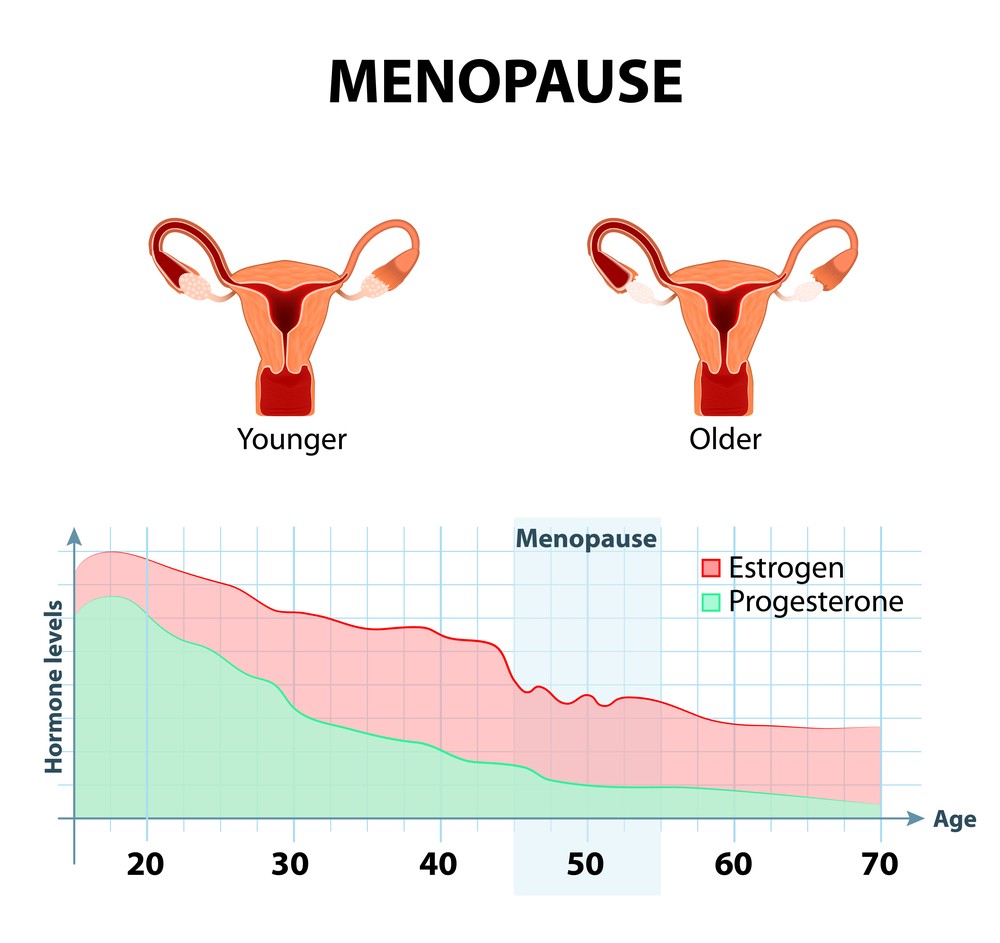
Introduction: Menopause is a natural biological process that marks the end of a woman’s reproductive years. It typically occurs in women in their late 40s to early 50s, but the timing can vary for each individual. As women approach menopause, they may experience a variety of physical and emotional changes known as menopausal symptoms. In this blog, we’ll explore some of the common symptoms of menopause and provide insights into what to expect during this transition.
- Hot Flashes: Hot flashes are perhaps one of the most well-known symptoms of menopause. These sudden sensations of heat can cause flushing of the face, sweating, and rapid heartbeat. Hot flashes can occur at any time of the day or night, often disrupting sleep and causing discomfort.
- Night Sweats: Similar to hot flashes, night sweats are episodes of excessive sweating during sleep. They can result in damp pajamas and disrupted sleep patterns, leading to fatigue and irritability during the day.
- Irregular Periods: As women approach menopause, their menstrual cycles may become irregular. Periods may become shorter, longer, heavier, or lighter than usual, and eventually, they may cease altogether. This fluctuation in menstrual patterns is a common sign of impending menopause.
- Vaginal Dryness: Decreased estrogen levels during menopause can lead to changes in the vaginal tissues, resulting in dryness, itching, and discomfort during intercourse. Vaginal dryness can also increase the risk of urinary tract infections and other vaginal issues.
- Mood Swings: Hormonal fluctuations during menopause can affect mood and emotional well-being. Many women experience mood swings, irritability, anxiety, and even depression during this time. These emotional changes can vary in intensity and duration, but they are a common part of the menopausal experience.
- Sleep Disturbances: Menopausal symptoms such as hot flashes and night sweats can disrupt sleep patterns, leading to insomnia and daytime fatigue. Additionally, hormonal changes during menopause can affect the quality of sleep, making it more difficult to fall asleep and stay asleep throughout the night.
- Changes in Libido: Some women may experience changes in their sexual desire and arousal during menopause. Decreased estrogen levels can lead to a decline in libido, vaginal dryness, and discomfort during intercourse. However, it’s essential to remember that every woman’s experience with menopause is unique, and not all women will experience the same symptoms or severity of symptoms.
Conclusion: Menopause is a natural stage of life that every woman will experience as she ages. While the symptoms of menopause can be challenging to navigate, it’s essential to remember that they are temporary and usually improve with time. If you’re experiencing bothersome symptoms of menopause, it’s a good idea to speak with your healthcare provider to explore treatment options and find ways to manage your symptoms effectively. With the right support and resources, you can embrace this new chapter of life with confidence and resilience.


